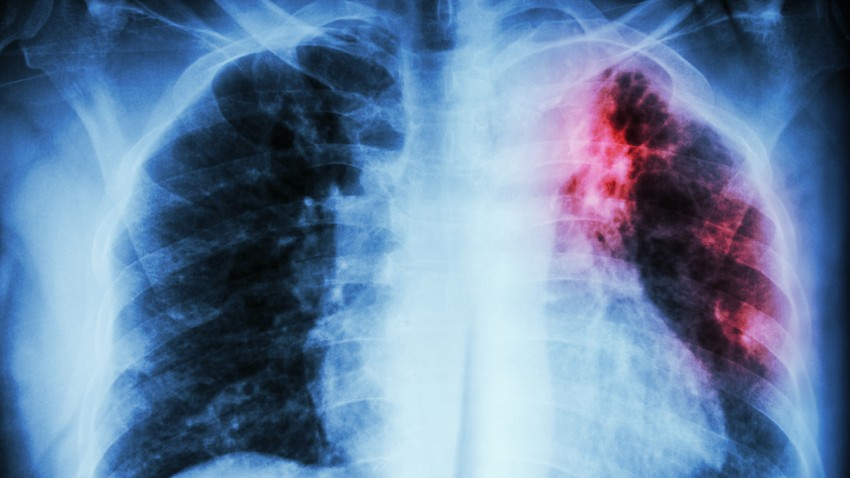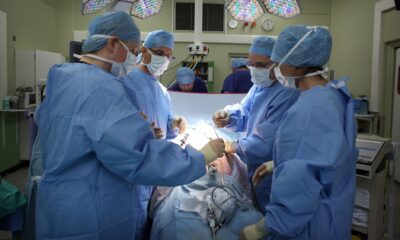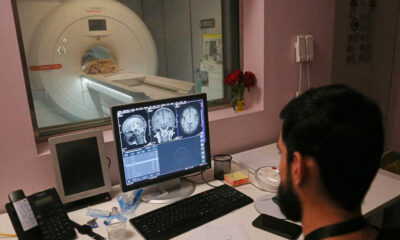Education
New Study Reveals Nutrition’s Role in Tuberculosis Recovery

A recent study published in PLOS Global Public Health emphasizes the critical role of nutrition in tuberculosis (TB) care. Conducted in India, the research highlights how malnutrition can significantly impact treatment outcomes for patients suffering from TB, a disease that remains a leading global health concern. The findings suggest that nutrition should be an integral part of TB treatment protocols rather than a secondary consideration.
Led by postdoctoral fellow Catherine Kagemann at the Cornell Joan Klein Jacobs Center for Precision Nutrition and Health, the research team examined how metabolic changes occur during TB treatment. Their work arrives at a pivotal time, as the World Health Organization (WHO) has recently issued new guidelines urging countries to incorporate nutritional assessment into TB programs. These guidelines, released on October 8, 2023, represent a significant shift in global TB policy.
“Even after successful TB treatment, we found that there is still a metabolic scar in these patients,” Kagemann stated. This observation has spurred the team to consider nutritional interventions in future studies, aiming to enhance recovery and prevent relapse.
The study analyzed metabolites—small molecules crucial for metabolism—of TB patients with varying severity of pulmonary TB over a six-month treatment period. Unique metabolic patterns emerged as therapy progressed, providing insights into how infection severity and treatment impact the body’s physiological systems.
Dr. Saurabh Mehta, the corresponding author and director of the Jacobs Center, noted, “When modern TB treatments came on board in the 1960s, they were so successful that many programs dropped nutrition from their agenda. But TB destroys your lifetime of built-up resources.” He emphasized the need to not only eliminate the bacteria but also to restore overall health to reduce the risk of relapse and other metabolic diseases.
The traditional focus of TB treatment has been on antibiotic regimens that target the bacterium Mycobacterium tuberculosis. However, the disease often undermines the host’s metabolism, leading to weakness and nutritional deficiencies. Kagemann explained that malnutrition is both a cause and a consequence of TB: undernourished individuals are more susceptible to the disease, which in turn can lead to severe weight loss and systemic health decline.
By utilizing chest X-ray imaging and sputum smear tests—an important measure of bacterial load—the study provided a comprehensive view of how metabolism varies with disease severity. Patients with higher bacterial loads exhibited distinct metabolic disruptions, indicating potential biomarkers that could inform future treatment and nutritional strategies.
The WHO’s updated guidelines advocate for routine nutrition screening and support as standard components of TB diagnosis and treatment, underscoring the need for a more holistic approach to care. In 2023, approximately 8.2 million individuals were diagnosed with TB, reaffirming its status as the world’s leading infectious killer. The intertwined issues of food insecurity and TB are particularly pronounced in many low- and middle-income countries, while the United States also faces rising TB cases, reaching a 13-year high in 2024.
Kagemann highlighted the importance of this research, stating, “The pilot study conducted in India provides early but valuable evidence that metabolic insights could help tailor treatment for persons with tuberculosis based on nutritional and disease status.”
Future studies are set to explore whether a general balanced diet or a more targeted nutritional approach can improve outcomes for TB patients. Kagemann noted that similar metabolic scarring was found in a larger cohort study in China, reinforcing the need for further investigation.
Dr. Pranay Sinha, an infectious diseases physician at Boston Medical Center and a faculty fellow at the Jacobs Center, emphasized the importance of integrating nutritional interventions. “We have been fervently searching for a new vaccine, more effective drugs, and host-directed therapies to prevent TB deaths and help patients reclaim their lives,” Sinha said. “But even as we search for remedies in sophisticated labs, we must not ignore those already available in the local grocery store.”
The study, which utilized samples from RePORT India, a long-term Indo-US collaborative TB program funded by USAID, tracks how the body’s metabolic profile changes during anti-TB treatment. Principal investigator Senbagavalli Prakash Babu remarked, “These findings provide a window into the biological processes underlying disease severity and treatment response, paving the way for more targeted and effective approaches to TB care.”
In conclusion, the need to not only cure TB but also rehabilitate patients through nutritional support is gaining recognition. As health authorities and researchers strive for improved TB care, the integration of nutrition could play a vital role in enhancing recovery rates and saving lives.
-

 Technology4 months ago
Technology4 months agoDiscover the Top 10 Calorie Counting Apps of 2025
-

 Health2 months ago
Health2 months agoBella Hadid Shares Health Update After Treatment for Lyme Disease
-

 Health3 months ago
Health3 months agoErin Bates Shares Recovery Update Following Sepsis Complications
-

 Technology4 weeks ago
Technology4 weeks agoDiscover 2025’s Top GPUs for Exceptional 4K Gaming Performance
-

 Technology2 months ago
Technology2 months agoElectric Moto Influencer Surronster Arrested in Tijuana
-

 Technology4 months ago
Technology4 months agoDiscover How to Reverse Image Search Using ChatGPT Effortlessly
-

 Technology4 months ago
Technology4 months agoMeta Initiates $60B AI Data Center Expansion, Starting in Ohio
-

 Technology4 months ago
Technology4 months agoRecovering a Suspended TikTok Account: A Step-by-Step Guide
-

 Health4 months ago
Health4 months agoTested: Rab Firewall Mountain Jacket Survives Harsh Conditions
-

 Lifestyle4 months ago
Lifestyle4 months agoBelton Family Reunites After Daughter Survives Hill Country Floods
-

 Technology3 months ago
Technology3 months agoUncovering the Top Five Most Challenging Motorcycles to Ride
-

 Technology4 months ago
Technology4 months agoHarmonic Launches AI Chatbot App to Transform Mathematical Reasoning




















